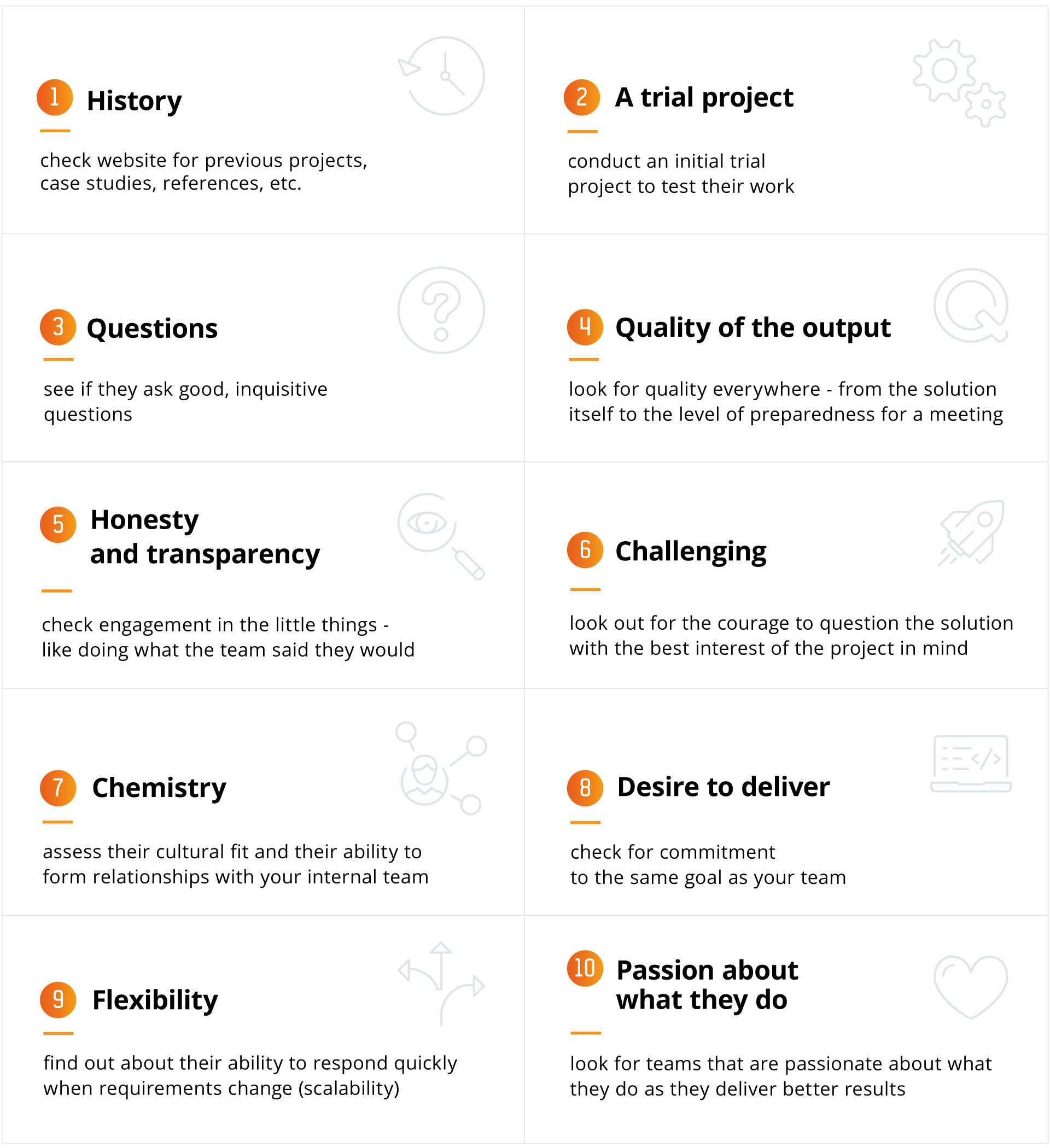How do you find out if your IT partner is really committed? As we’ve described in our guide on successful project teams, team engagement is a huge factor in the success of a software project. Working with partners that only give you their time, not their passion and energy, will not end with the best possible result for your project.
So how do you find out if your partner is really committed?
It is difficult to assess your technology partner’s engagement, unless you are already working on a project or have worked together before.
However, you can look out for signs that will to help you predict their attitude, quality of work and customer service.
Engagement can also be checked during the ‘request for information’ stage, since questions asked earlier on and a quick reaction time are good signs.
To give you a more in-depth view of how to check or predict a technology partner’s commitment to the project, we have surveyed a number of our existing clients. How do they assess engagement of their technology partner?
Watch the interview and read the article below to find out.
10 signs your technology partner is engaged in the project
Team engagement is a huge factor in the success of a software project. To give you a more in-depth view of how to check or predict a technology partner’s commitment to the project, we have surveyed a number of our existing clients. These are they top tips on checking your outsourcing partner’s engagement:

-
History
Before you involve yourself in the project, do some research – browse through the website to check what other organisations the company is (or was) working with and review their case studies to find out more about their previous projects – obviously, the more positive references the better.
-
A trial project
One of our clients recommends having an initial trial – a small project after which you’ll get to know your developers and you’ll have a piece of code created to verify. As our client pointed out:
‘see if it comes out better than you thought it would.’
-
Questions
Asking questions aimed at specifying or clarifying your expectations and requirements is a definite sign of your partner’s engagement. These should not only include queries about the project but also about a broader scope concerning the company, your end users or the part you play in the sector.
-
Quality of the output
The quality of the output is one of the easiest measures of engagement – if the team is engaged, it will be visible in the results of their work. This not only concerns larger pieces of work, but also smaller things like quality of documentation or the level of preparedness for a meeting.
-
Honesty and Transparency
Our clients find engagement in the little things – like doing what the team said they were going to do, the transparency of a progress, the showing of quality, and being proactive. They also value when the partner can honestly say when they are not able to do something or if it takes longer than expected.
-
Challenging
A partner that is challenging (when needed) was listed as one of the signs of engagement too. Having the courage to question the solution with the best interest of the project in mind is appreciated by those we surveyed. Why? Because it encourages learning from experts and eliminates the danger of finding problems too late.
-
Chemistry
Cultural fit and forming relationships with your internal team was also named a mark of engagement. One of our Clients said:
‘if you can put two teams in a room and they discuss a solution, then have a laugh and then get back to see how to take that forward…This will bring you a far better product.’
-
Desire to deliver
Taking accountability, responsibility and ownership of the solution jointly with the client’s team was also listed as one of the signs of engagement. Being committed to the same goal and being invested in the project are important qualities to those we spoke with.
-
Passion about what they do
It is no secret that when you love what you do and have a genuine interest in the area you are working with, the results of such work will be much better. Therefore, it’s good to go with teams who are passionate about what they do. Extracurricular activities like technical workshops and blogs can be an indicator of passion for the subject.
-
Flexibility
Your partner must not only understand your requirements, but also be able to respond quickly when they change. Being elastic is a good sign of engagement with the needs of your business.
